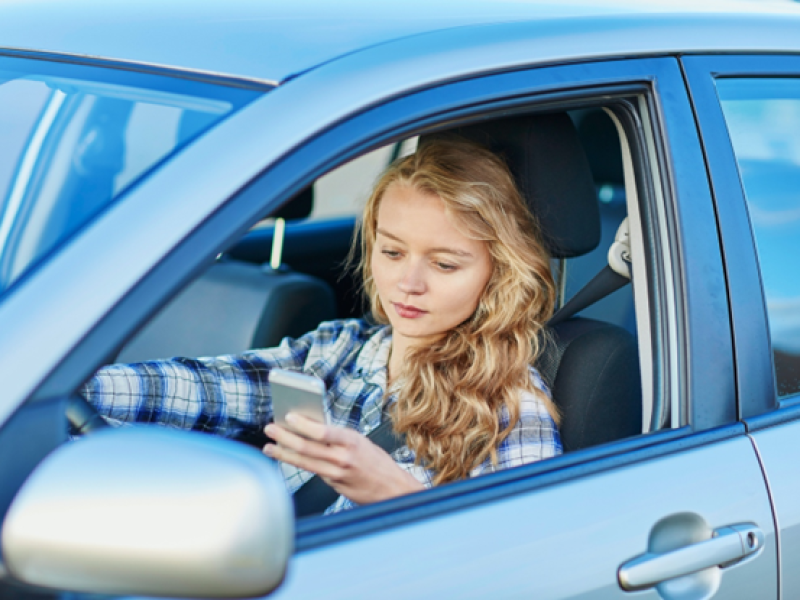
— Traffic Resources
Is It Legal To Text At A Redlight?
Multitasking has become a badge of honor in today’s society. Being able to accomplish multiple operations simultaneously indicates efficiency and productivity, qualities that are culturally valued. However, when it comes to driving, multitasking is generally considered a bad idea. A driver who wants to make a quick call to the office to let their assistant know they are running late, or send a short text asking their partner to pick up milk on the way home, may think the action is harmless and only takes a few seconds. While it may be true that the text only takes a few seconds to draft and send, drivers should also consider: Is it legal to text at a redlight? Is it legal to text or call at any point when you are driving in Virginia? If it is not legal, what will happen if a police officer catches you? If you have questions about using your phone while driving or have been ticketed for texting while driving in Virginia Beach, Suffolk, or the surrounding area, the experienced traffic law attorneys with Driving Defense Law may be able to help. Call (757) 929-0335 to schedule a free case evaluation and learn more about your legal options.
Is Virginia a Hands-Free State?
On January 1, 2021, Virginia became a hands-free state. Pursuant to Virginia Code Section 46.2-818.2, it is now illegal for drivers to hold a personal communication device in their hand while operating a motor vehicle. There are exceptions to this law, including emergency vehicle operators while performing official duties, drivers who are reporting an emergency, and drivers who are lawfully parked or stopped.
What this law means is that drivers may still use all the features of their smart phones as long as they can use them in a hands-free mode. If a law enforcement officer sees a driver violating the hands-free law, the violation is considered a primary offense, and the driver can be pulled over solely for the cell phone use. The first violation results in a $125 fine, while second and subsequent violations result in a $250 fine each. If a driver violates this law in a highway work zone, the infraction incurs a mandatory $250 fine. Points are also issued to the driver’s license.
What Makes Using the Phone While Driving Dangerous?
The Virginia Department of Motor Vehicles (DMV) classifies phone usage as distracted driving. Distracted driving can cause a driver to miss critical cues, events, or objects while driving, any of which can lead to a loss of control and potentially a significant accident. The DMV outlines three types of distracted driving. Each of these can apply to using a cell phone while driving if the driver is not in hands-free mode:
- Visual: The driver’s eyes are not on the road and instead are on another object, such as the phone’s screen.
- Manual: One or both of the driver’s hands are off the wheel, as when holding a phone.
- Cognitive: The driver’s brain is split between two cognitive tasks, such driving and talking on the phone. Cognitive distracted driving often involves prioritizing the non-driving activity, such as a the phone conversation; this differential distribution of attention can lead to severely impaired driving.
Can You Talk and Drive in Virginia?
Any hands-free use of the phone is legal in Virginia. Therefore, drivers are free to talk on their phones while driving as long as they do so without holding the phone in their hand. Drivers may talk on the phone or use voice commands to instruct the phone to perform actions (such as opening their GPS application and looking up an address).
Any cell phone activity that requires the driver to hold their phone, or to use their hands to access or use the application, is a violation of Virginia law. Examples of these activities could include playing games or taking a photo or video. If you have been ticketed for using your cell phone, Driving Defense Law may be able to help you.
Is It OK To Text at a Redlight?
Virginia’s law is rather broad, which leaves a lot open to interpretation. Is it legal to text at a redlight? Technically, a driver is lawfully stopped when at a redlight. By this interpretation, texting at a redlight would be acceptable. However, because the vehicle is still on the road, in traffic, with the driver’s foot on the brake, an argument can also be made that they are still driving. By that interpretation, texting at a redlight would be a violation of the law.
Because of the broadness of the law and the ways in which it can be interpreted, it would be up to the discretion of the officer who sees a driver texting at a redlight whether to ticket the driver. In general, traffic attorneys recommend erring on the side of caution and not texting at a redlight. To ensure full compliance with the law, drivers should safely pull to the side of the road or into a parking lot before texting.
Can a Driver Drive With One Earbud in Their Ear in Virginia?
Drivers may be tempted to use earbuds, wraparounds, or headphones to carry on a phone conversation hands-free. Virginia Code Section 46.2-1078 states that it is illegal to use anything on or in both ears while operating a motor vehicle. The law does not state that drivers cannot use an earbud or other listening device in just one ear, so technically, it is legal to drive with a single earbud in the driver’s ear in Virginia.
Driving with one ear blocked by an earbud is hazardous, however. The earbud blocks the driver’s ability to hear traffic and other sounds around them that they need to hear so they know what is happening and where it is happening. Therefore, as a best practice it is recommended that drivers not drive with an earbud in one ear. Instead, drivers may want to use the speakerphone option on their phones or use Bluetooth to connect their phone to their car.
Have You Been Ticketed for Texting at a Redlight?
Is it legal to text at a redlight? There is no certain answer to that question because the law is currently ambiguous. This is why drivers ticketed for texting at a redlight may want to consider contesting the ticket. While there are no guarantees that you will get the ticket dismissed, it may be worth the effort to try. Consider scheduling a free case evaluation with the knowledgeable traffic law attorneys with Driving Defense Law at (757) 929-0335.

